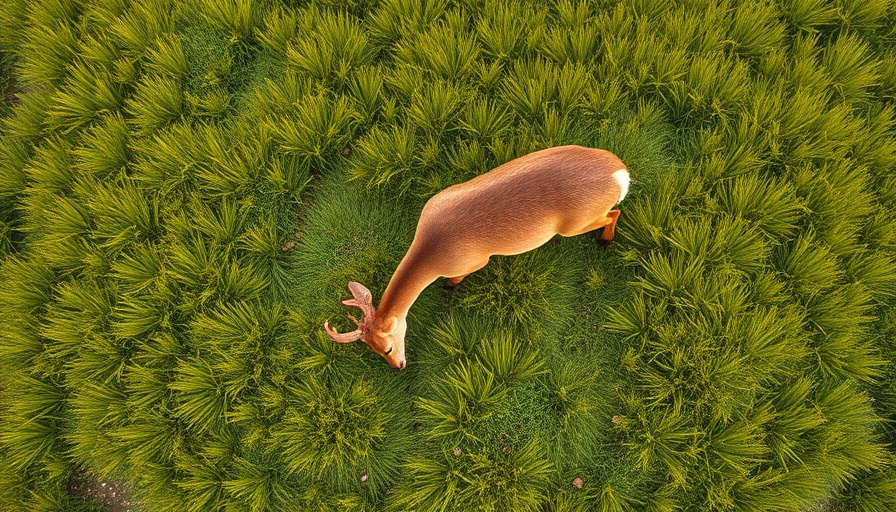
A Glimmer of Hope for the Upemba Lechwe
In the southern region of the Democratic Republic of Congo, within the misty confines of the Kamalondo Depression, a rare photograph has sparked renewed interest in one of Africa's most elusive antelopes—the Upemba lechwe (Kobus anselli). Once thought to be lost to the annals of time, this antelope has been captured on camera after its elusive presence remained hidden from science for decades. This landmark sighting—alongside the vital conservation efforts it has spurred—serves as a crucial wake-up call to raise awareness about the plight of biodiversity in the region.
The Fragile Existence of the Upemba Lechwe
Once thriving in the thousands during the 1970s, the Upemba lechwe population has taken a devastating hit, with only ten individuals counted during a recent survey. This stark decline underscores the urgent need for conservation efforts, particularly as poaching and agricultural encroachment threaten their habitat. As large mammals like the Upemba lechwe are among the first to vanish amidst environmental pressures, their survival, or extinction, serves as a potent indicator of broader ecological health.
Urging Action from Policymakers and Investors
For policymakers and investors focused on sustainable practices—and specifically those with an eye towards green energy and eco-tourism—now is the time to act. Non-governmental organizations and conservationists like biologist Manuel Weber are calling for increased investment in conservation strategies and infrastructure. This includes establishing new ranger outposts to bolster protection against poaching and habitat destruction. This is especially vital as the Upemba National Park transforms from a once-deadly stronghold of militia activity to a beacon of hope for biodiversity recovery.
Linking Conservation to Sustainable Development
Efforts to save species like the Upemba lechwe illustrate a broader narrative: conservation leads to sustainable development, which can drive local economies. By prioritizing wildlife protection, policymakers can bolster eco-tourism and promote sustainable agriculture models that benefit both the environment and local communities. Engaging the community in conservation initiatives is key to ensuring that wildlife and local livelihoods can thrive together.
The Role of Technology in Conservation
Innovations in AI and technology could also play a pivotal role in monitoring and protecting endangered species across Africa. From drone surveillance for park rangers to mobile applications for local communities to report poaching incidents, tech represents a significant avenue for improving wildlife protection initiatives. Prioritizing these investments will help allay fears surrounding climate change and biodiversity loss, ultimately securing a future for both wildlife and humanity.
In conclusion, as individuals and organizations passionate about protecting wildlife and the environment, the situation of the Upemba lechwe should serve as a rallying cry. Your support—whether through policy advocacy, investment, or simply spreading awareness—can make a difference in the fight against climate change and the fight for conservation in Africa. Join the cause to ensure that our planet’s biodiversity is preserved for generations to come.
 Add Row
Add Row  Add
Add 


Write A Comment